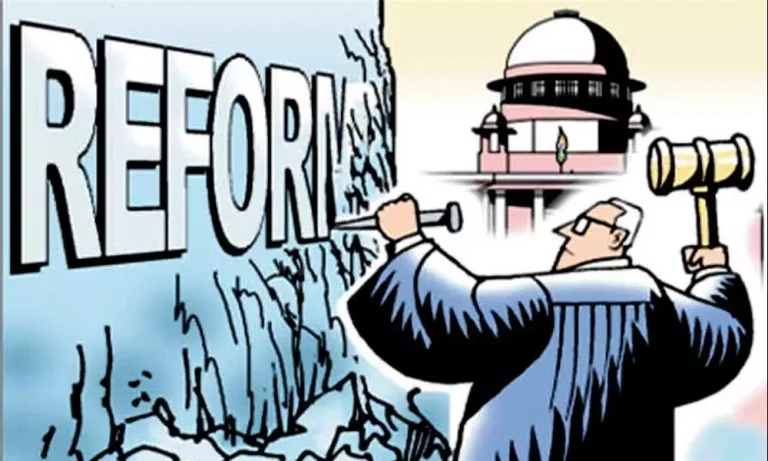Amid growing political instability, concerns about Nepal’s democratic health have intensified. A recent public proposal has outlined urgent steps for political reform, targeting what critics describe as a deep-rooted governance crisis. These steps call for barring key political leaders from active politics, forming a transitional government, holding inclusive national dialogues, and conducting a public referendum.
Nepal is currently grappling with a political impasse that experts say has undermined public trust, stalled reforms, and weakened state institutions. The debate around democratic backsliding has gained traction as frustration builds over corruption, lack of accountability, and poor leadership.
Calls for Reform Amid Growing Discontent
In a recent Facebook post dated March 30, 2025, a Nepali political analyst proposed a four-point action plan to help steer the country toward a more transparent and inclusive democratic process. The plan comes amid rising dissatisfaction with what many call a networked form of state capture, involving political elites, security forces, the judiciary, and big business.
According to the proposal, Nepal must begin its reform journey by barring three prominent leaders—K.P. Sharma Oli, Pushpa Kamal Dahal, and Sher Bahadur Deuba—from holding political office. These three leaders, often referred to as the “ODD trio,” are accused by critics of repeated constitutional manipulation and undermining federal democracy.
“The political system is clogged by the same cycle of leaders who’ve failed to bring long-term reform,” said political science lecturer Anil Shrestha. “A clean break is needed if we want fresh ideas and public trust to return.”
Proposal Suggests National Government and Referendum
The second step calls for temporarily suspending the current parliament and forming a national government. This transitional body would include younger politicians with clean records, members of civil society, and credible public intellectuals.
The third step recommends holding nationwide dialogues and inclusive conclaves. These meetings should involve not just political parties, but also voices from academia, civil society, and marginalized communities. Organizers should ensure full transparency by broadcasting discussions through trusted media platforms.
Finally, the fourth step proposes a national referendum to resolve long-standing questions about national identity and governance. Issues on the table could include restoring a ceremonial monarchy, restructuring provinces, and revisiting traditional cultural practices rooted in the Sanatan way of life. This referendum, the proposal argues, should coincide with a general election within a year.
Deep Concerns Over Governance
Over the past four decades, Nepal has shifted from a constitutional monarchy to a federal democratic republic. However, many say the democratic transition has fallen short. While leaders have frequently pledged reform, public services remain weak, and citizens continue to face rising insecurity, unemployment, and lack of opportunities.
Nepal’s political structure, critics argue, has become more elitist and corporate-driven, where wealthy interest groups dominate decision-making. At the same time, civil society has weakened, and public participation has dwindled.“People feel unheard,” said Sushila Thapa, a youth activist based in Pokhara. “Leaders talk about democracy, but we don’t feel it on the ground. Corruption and political favoritism are everywhere.”
Trust in State Institutions Declines
Political observers warn of a growing gap between the public and state institutions. This disconnect has led to increased support for conservative ideologies and a potential right-wing resurgence. Some have even floated the idea of revisiting the 2008 decision to abolish the monarchy—a move made without a public referendum.
“Had the monarchy issue gone to a national vote back then, we might have avoided much of today’s distrust,” said constitutional expert Dr. Bishnu Aryal.
While the monarchy has not regained serious political traction, discussions around its symbolic revival are emerging, especially as frustrations rise among younger voters.
Root Causes: Corruption and Poor Leadership
The call for reform follows years of political turmoil marked by policy failures, inconsistent governance, and public disillusionment. Many citizens feel that law enforcement and the constitution have been misused for political gain.
Nepal’s major political parties—Nepali Congress, CPN-UML, and the Maoists—have faced widespread criticism for failing to address structural problems. The handling of scandals, including the fake Bhutanese refugee case involving high-profile names like Arzu Rana, has further eroded trust.
The nation also continues to face geopolitical pressure due to its location between India and China. Internal instability only adds to the challenge.
A Path Forward?
The four-step proposal, though ambitious, offers a structured approach to dealing with the present crisis. It emphasizes clean leadership, public engagement, transparent dialogue, and direct democracy through referendum.
Whether these proposals gain political traction remains to be seen. However, they reflect a growing desire among Nepalis for real change and a system that works for the people.
As Nepal looks ahead, the coming months could prove decisive. Citizens, civil society, and the media must stay vigilant and push for reforms that protect democratic integrity.


